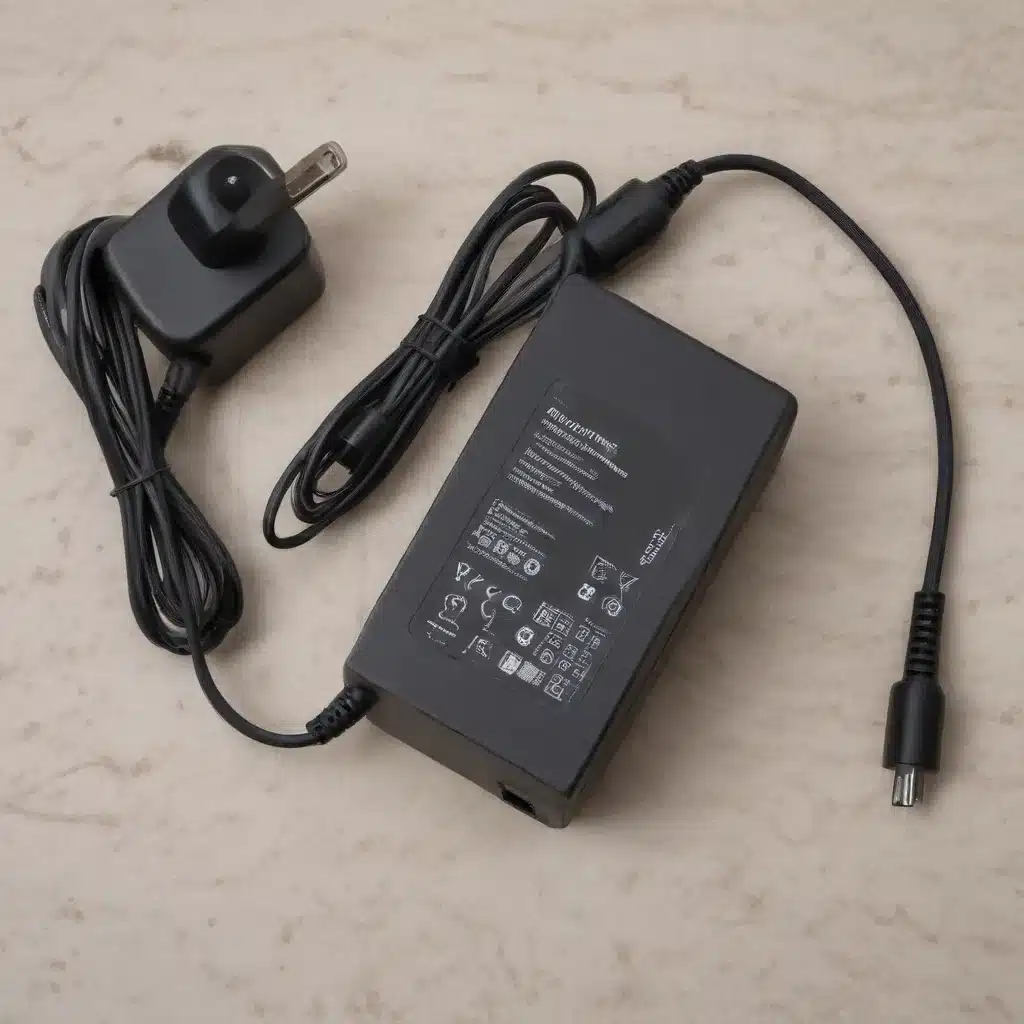
Navigating the Complexities of Laptop Power Accessories
As an experienced IT professional, I’ve encountered countless questions and concerns from users about the importance of laptop power adapter compatibility. In this comprehensive guide, we’ll explore the intricacies of power adapter selection, the potential risks of using incompatible chargers, and practical strategies to ensure your laptop stays reliably powered, no matter where your work or travels take you.
Understanding Power Adapter Specifications
At the heart of laptop power adapter compatibility lies a deep understanding of the technical specifications. Each laptop manufacturer designs its power adapters with specific voltage, amperage, and connector requirements. Failing to match these specifications can lead to a myriad of problems, from slow charging times to permanent damage to your device.
When shopping for a replacement or universal power adapter, pay close attention to the following details:
- Voltage: Laptops typically require either 19V, 20V, or 24V. Using an adapter with the wrong voltage can result in over- or under-charging, potentially harming your battery.
- Amperage: The adapter’s amperage rating must meet or exceed the laptop’s power consumption needs, typically ranging from 3.42A to 6.94A. A lower amperage can cause slow or incomplete charging.
- Connector Type: Laptop power ports come in a variety of shapes and sizes, from the classic barrel connector to the more modern USB-C. Ensuring the adapter’s plug fits your laptop’s port is crucial.
By matching these key specifications, you can rest assured that your power adapter will provide the safe and efficient charging your laptop requires.
Risks of Using Incompatible Chargers
Attempting to use a power adapter that doesn’t meet your laptop’s specific requirements can have serious consequences. Disregarding the importance of compatibility can lead to a range of issues, including:
-
Slow or No Charging: An adapter with insufficient amperage or the wrong voltage will be unable to provide the necessary power to charge your laptop efficiently, leading to frustratingly slow or even failed charging attempts.
-
Battery Damage: Repeatedly using an incompatible charger can gradually degrade your laptop’s battery, reducing its overall lifespan and capacity.
-
Electrical Damage: In the worst-case scenario, connecting your laptop to a power adapter that exceeds the recommended voltage can cause permanent damage to the internal circuitry, rendering your device unusable.
-
Fire and Safety Hazards: Substandard or counterfeit power adapters may lack essential safety features, increasing the risk of overheating, electrical shorts, and even fire.
To avoid these potential pitfalls, it’s crucial to prioritize using the manufacturer-recommended power adapter or a verified compatible alternative. Doing so will not only protect your investment but also ensure the long-term reliability and safety of your laptop.
Selecting the Right Power Adapter
When searching for a replacement or universal power adapter, there are several factors to consider to ensure a perfect match for your laptop:
-
Manufacturer Recommendations: Start by consulting your laptop’s user manual or the manufacturer’s website to identify the specific power adapter model and specifications required. Adhering to the manufacturer’s guidelines is the surest way to maintain compatibility and safety.
-
Compatibility Charts: Many accessory manufacturers, such as Targus, offer comprehensive compatibility charts that allow you to easily find the right power adapter for your laptop model. These charts often include details on voltage, amperage, and connector types.
-
Universal Adapters: If you own multiple laptops or anticipate needing to charge your device in various locations, a universal power adapter with interchangeable tips can be a practical solution. Just ensure the adapter’s specifications align with the power requirements of all your devices.
-
Quality Assurance: When sourcing a third-party power adapter, look for certifications from organizations like USB-IF, which signifies adherence to industry safety and performance standards. Avoid cheap, unbranded alternatives that may pose fire or electrical hazards.
-
Surge Protection: Consider a power adapter with built-in surge protection, which can safeguard your laptop from voltage spikes and other electrical irregularities that could potentially damage its internal components.
By following these guidelines, you’ll be well on your way to finding a power adapter that seamlessly integrates with your laptop, providing reliable and safe charging no matter where your work or travels take you.
Caring for Your Power Adapter
Proper care and maintenance of your laptop’s power adapter can help extend its lifespan and ensure consistent, trouble-free performance. Here are some tips to keep in mind:
-
Avoid Bending or Twisting: Be gentle when handling the adapter’s cable, as excessive bending or twisting can lead to internal wire damage and potentially cause short circuits.
-
Keep It Clean: Regularly wipe down the adapter’s surfaces with a soft, dry cloth to remove any dust or debris buildup, which can impede heat dissipation and contribute to overheating.
-
Store Properly: When not in use, coil the cable neatly and store the adapter in a cool, dry place, away from direct sunlight or extreme temperatures.
-
Monitor for Wear and Tear: Inspect your power adapter periodically for signs of wear, such as frayed cables, cracked casings, or loose connections. If any issues are detected, replace the adapter immediately to prevent further damage to your laptop.
By following these simple care and maintenance practices, you can help ensure your power adapter continues to provide reliable, long-lasting performance, safeguarding your laptop investment for years to come.
Conclusion: Embracing Laptop Power Adapter Compatibility
In the dynamic world of technology, understanding the importance of laptop power adapter compatibility is crucial for maintaining the health and longevity of your device. By familiarizing yourself with the technical specifications, recognizing the risks of using incompatible chargers, and following best practices for selection and care, you can confidently power your laptop, wherever your digital journey takes you.
Remember, IT Fix is always here to provide expert guidance and support on all your technology-related questions and concerns. Stay empowered, stay connected, and keep your laptop charged and ready to tackle any challenge that comes your way.












